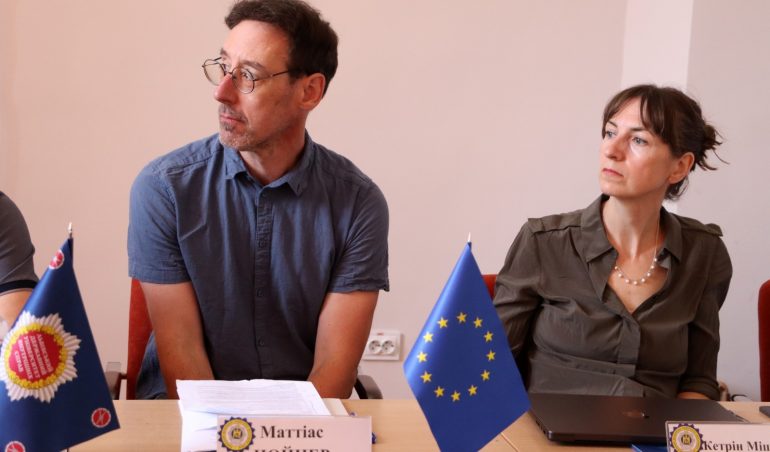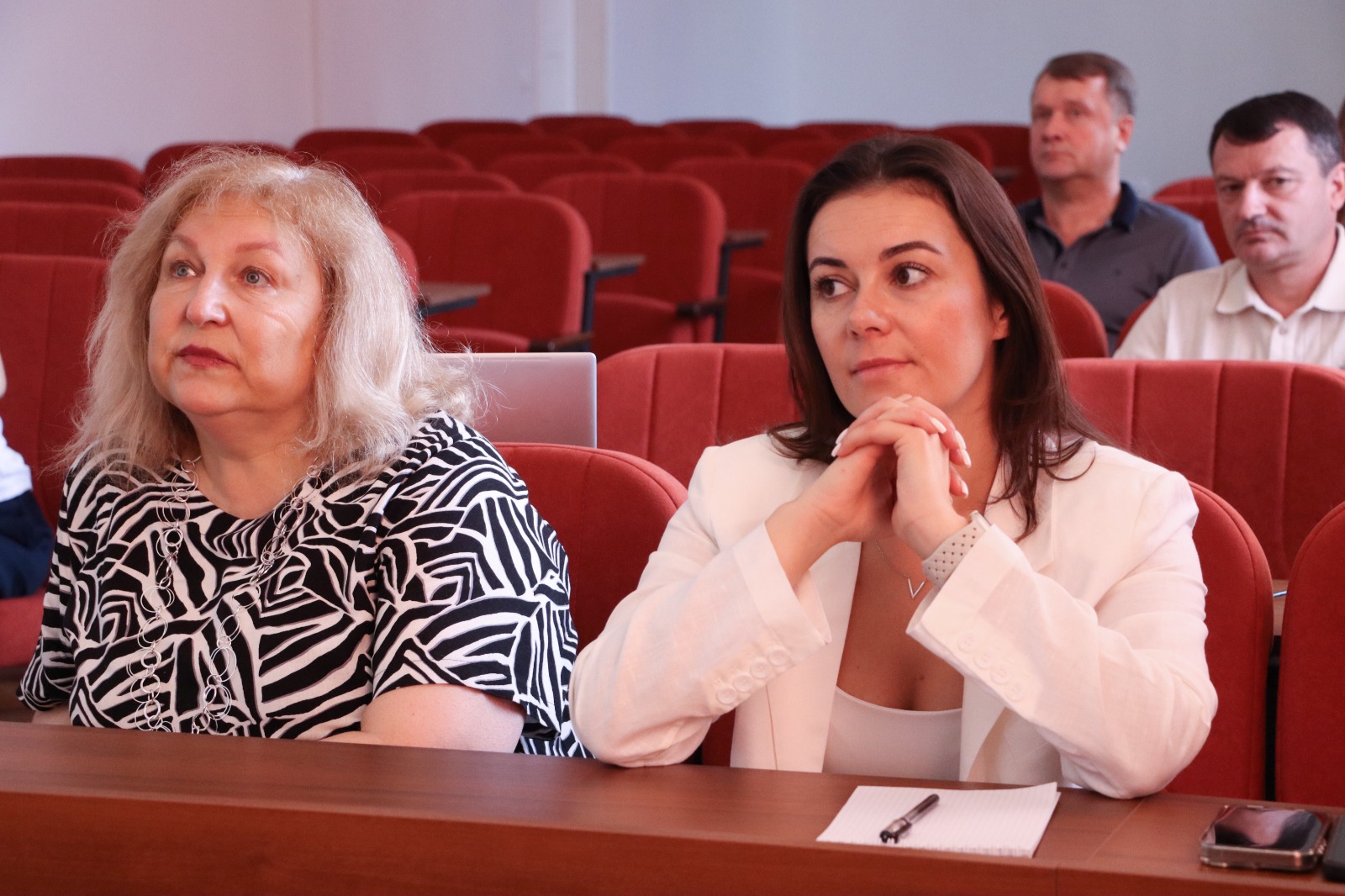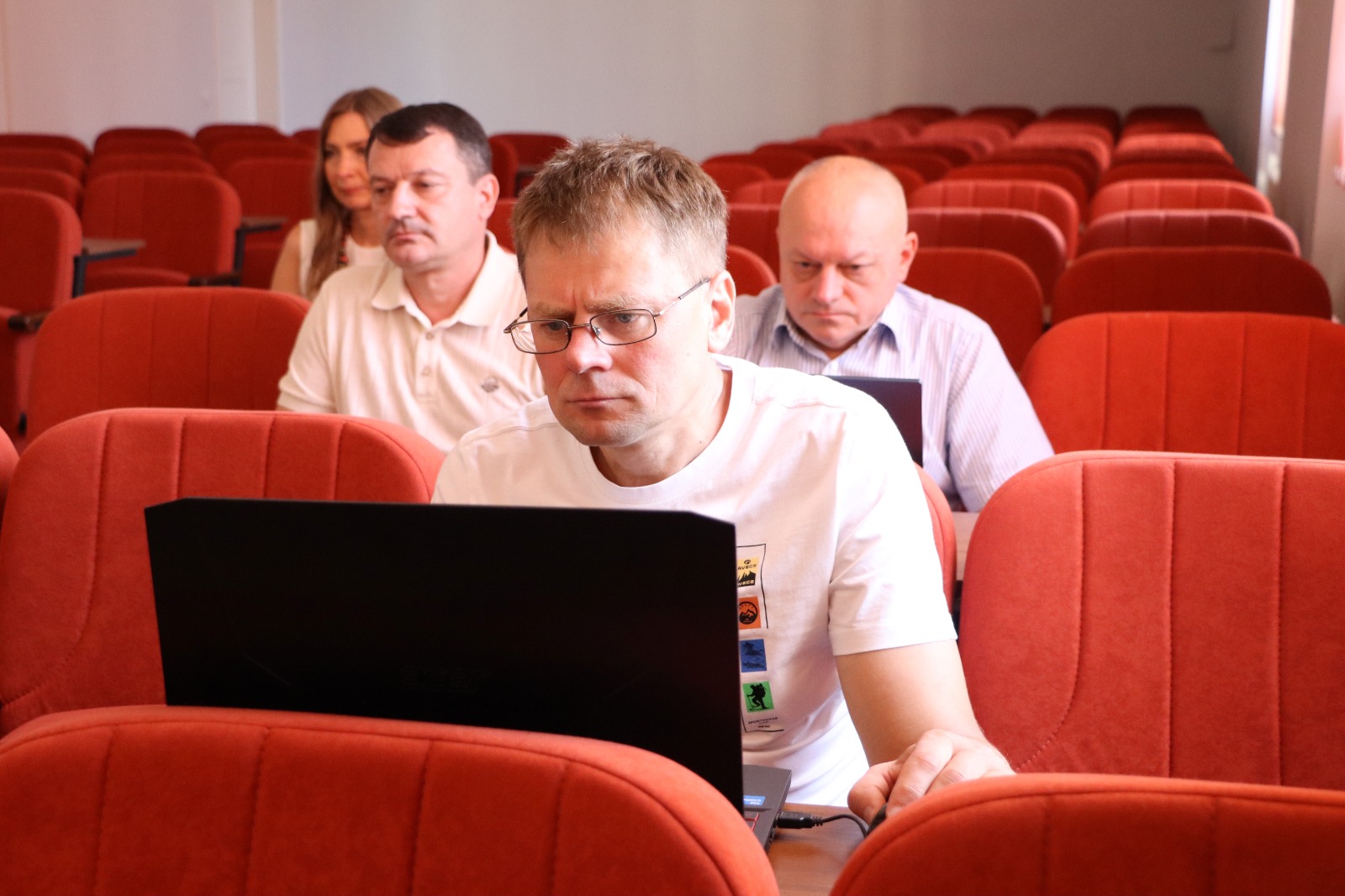Russian authorities ongoing reclassification of Ukrainian cultural objects
August 19, 2025
Joint activity of the Ukrainian Office of the Prosecutor General, the Ukrainian Ministry of Culture and Strategic Communication and Curia lab with advice by EUAM Ukraine.
Following the occupation of parts of Ukraine, the Russia has reclassified more than 650,000 Ukrainian cultural heritage objects — including artefacts, archives, books, icons and works of art, by enlisting them in the online catalogue of the Russian Museum Fund. The Russian authorities are in the process of adding cultural heritage objects from at least 122 Ukrainian museums now on territory under occupation. Some of the objects reclassified through entries in Russia’s Museum fund catalogue have different descriptions now and omit reference to their Ukrainian origins. Analysts from Curia Lab documented facts of digital cataloguing of cultural heritage objects including attempts to legitimize them as part of ‘Russian cultural heritage’.
These were among the findings presented by Curia Lab researchers Professor Dr. Fiona Greenland and Dr. Katherine Harrell, who carried out research with EU support documenting the large-scale and ongoing reclassification of cultural objects from occupied territories of Ukraine. Their work was presented at last week at a press conference at the National Museum of the History of Ukraine in Kyiv and in Lviv, where EUAM Ukraine and the Ministry of Internal Affairs’ Lviv Academy had organized a lecture and discussion on the reclassification of Ukrainian cultural heritage objects by the Russian occupation authorities.
The presentations in Lviv prompted a four-hour discussion between the participants, including representatives of the Ministry of Culture and Strategic Communication, the Office of the Prosecutor General, the Security Service of Ukraine, the academia and EUAM Ukraine. The debate centered on the techniques and scope of Russia’s policy of reclassifying Ukraine’s cultural heritage and the steps required to document it.
Ukrainian officials say the practice is more than a bureaucratic exercise. It is seen as an attempt to change the Ukrainian cultural narrative, prepare and legitimize the (future) removal of Ukrainian cultural heritage objects within the occupied territory and, ultimately, their relocation abroad, meaning outside the legitimate borders of Ukraine.

“The disappearance of Ukrainian books from public libraries in territories under occupation and their replacement with Russian books indicates a systematic approach” said Matthias Neuner, EUAM’s Senior Adviser on the Prosecution of International Crimes.
The occupying power has legal obligations to involve the authorities whose cultural heritage objects are concerned before removing or altering them. However, representatives of the Ukraine Ministry of Culture and Strategic Communication explained that they were not being contacted by the Russian authorities with regards to the treatment of Ukrainian cultural heritage objects now located on the occupied authorities. Mr. Neuner continued that only in extreme cases of emergency, an occupying power does not need to consult the authorities who administered the cultural objects before the occupation began, but then only the “most necessary measures” are to be taken by the occupying power. Currently, in Ukrainian occupied territory there are no such emergency situations.
He stressed that EUAM Ukraine is awaiting the end of the fact-finding phase by Curia lab in order to look through the entirety of evidence. Then, EUAM Ukraine will formulate legal advice as regards the legality or illegality of ongoing conduct of the Russian authorities, including whether reclassification of Ukrainian cultural heritage is merely forbidden by international humanitarian law concerning occupation, or whether it can also be considered as an international crime.

EUAM Ukraine is assisting its Ukrainian partners, providing expertise, best practices and legal advice to ensure that crimes against cultural heritage are correctly documented and can serve in the future as evidence in accountability processes.
The Ministry of Culture and Strategic Communication expressed readiness for further dialogue and pledged support for ongoing research efforts.
On 14 August, during the press conference at the National Museum of the History of Ukraine in Kyiv the Deputy Minister of Culture and Strategic Communications of Ukraine for European Integration Andriy Nadzhios welcomed EUAM representatives, Curia Lab researchers and Ukrainian law enforcement to discuss next steps.
On 16 September 2025, EUAM will organise in Kyiv a roundtable on domestic approaches to respond to crimes affecting cultural heritage.


